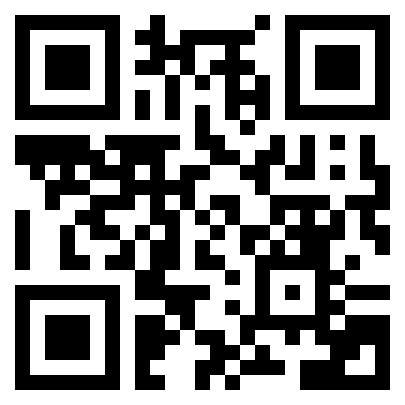Unit 12: Physiological Principles for Health and Social Care BTEC Level 3 Assignment sample UK
Unit 12: Physiological Principles for Health and Social Care Aims to Stress the Inextricable Relationship Between Human Body Structure and Its Physiological Functions with Emphasis on the Holistic Nature of the Body and Its Intermingled Ways of Maintaining Health Conditions. Key Anatomical Features and Body Systems and Routine Physiological Data Used in Healthcare Settings Will Be Explored by Students. Additionally, the unit learns how physiological differences can affect planning care for individuals. From knowledge of these principles, learners will know the core knowledge to be able to effectively practice health and social care services designed to an individual’s need.

Get Expert Help with Unit 12: Physiological Principles for Health and Social Care Assignment Solution UK
Get expert assistance for your Unit 12: Physiological Principles for Health and Social Care assignment solution in the UK. Do you want to look for essay writing, coursework, online exam, or homework? We are here to help you complete that. Our professional BTEC assignment help for set according to your requirements. We will be bothered to ease that for you too, with our full support to ensure grades and timely submission. Let the complex work not intimidate you; get what you deserve today, and achieve success in academics with our reliable services!
Task 1: Understand the Structure and Function of the Human Body
Assignment Task Description:
This task includes identifying and explaining the structure and functioning of the human body. You will describe main anatomical features, explain interactions of different body systems, and indicate how these interactions sustain life and support growth.
Essential Points to be Covered:
Anatomy of the Human Body
Highlight the major body organs, such as limbs, head, abdomen, skeleton, and other essential human body organs, which consist of the heart, lungs, kidneys, etc
Discuss what all body parts (e.g. blood cells, ligaments, organs) do Divide the structure with sketches.
Human Body Systems and Their Functions
Mention how the systems of the body, such as the digestive, respiratory, reproductive, nervous, cardiovascular, etc work, interlink and allow the body to grow and develop well.
Explain the relation of these systems to sustain homeostasis and facilitate functions such as locomotion, digestion, and breathing.
Metabolism and Growth:
Explain metabolically how the body maintains energy, thereby maintaining control over body functions.
Explain how the body grows and replaces old tissues, including cellular regeneration and metabolic activity.
Task 2: Explain how Functioning of the Body is Related to Anatomy and Physiology
Task Overview Assignment:
This assignment aims to find out the relationship between anatomy and physiology and how bodies function to execute their tasks. You will explain how the body’s function is connected with its anatomy, including its daily function, the internal functioning that regulates the body, and how systems maintain all the functions of the body.
Body Anatomy and Function
Explain that the functions in the human body are a reflection of its anatomy, but take examples of specific systems, such as digestion and the circulatory system.
Use concrete examples from everyday experiences-focusing on how the body responds to exercise-to explain how the systems interact.
Tissue Structure and Physiology:
Outline how each type of tissue epithelial, muscle, and nervous tissues-can be used in the overall function of the body.
Outline physiological responses such as muscle contraction, nerve action, and hormonal balance in the context of everyday activities.
Internal Regulation and Coordination:
Discuss how the body coordinates its internal activities such as controlling body temperature, heart rate and blood pressure.
Briefly explain the contribution of the nervous and endocrine system towards this coordination.
Task 3: Understand how Routine Data Collected in Health and Social Care Informs Care Planning
Assignment Task Overview:
In this exercise, you will consider how data that is collected in health and social care settings informs the planning and delivery of care. You’ll consider what types of data collected tell about body functioning and how that data can be used to develop a care plan for an individual.
Routine Measures in Health and Social Care:
Identify routine measures commonly undertaken in health and social care, such as blood pressure, heart rate, temperature, and blood tests.
Discuss how these measures are meaningful and what they tell an individual about the physiological state of their body.
Interpretation of Routine Data:
Describe how routine data represents what the body has been doing and what may be going wrong (for example, high blood pressure being indicative of cardiovascular risk).
Discuss the role of diagnostics: X-rays, ECGs, and MRIs) in providing information about the body’s functioning
Care Planning Based on Routine Data:
Explain how the data obtained influences the care plans for the individual while maintaining the provision of health and social care services tailored to the individual’s needs.
Provide examples of how care plans are adjusted through data (such as blood sugar checks for patients with diabetes).
Task 4: Relating Routine Changes in Body Structure and Functioning to Care Provided
Summary of assignment task:
This exercise focuses on how changes in the body structure and function affect care. You will discuss how health care providers apply this knowledge to adjust care plans and interventions to support individual needs.
Common Variations in Body Structure and Functioning
Discuss common changes in body structure (due to aging, illness or injury) and the effect on normal functioning.
Identify disorders or conditions that cause these deviations (such as arthritis, or respiratory disease).
Providers provide care differently because of these changes; identify the specific treatments, medications, or therapies necessary due to such changes.
Provide your own scenarios where care is altered based on the patient’s condition, such as physical therapy due to immobility, dietary alteration, or appropriate bowel preparation due to gastrointestinal disorders.
Daily living skills and personal hygiene:
Talk about the importance of routines, including medication, physiotherapy, and surgery, to good health and recovery.
Explain how deviations from routines impact on overall health and recovery.
Order Your Unit 12: Physiological Principles for Health and Social Care Assignment Sample Now!
Do you study BTEC Level 3 Health and Social Care? Are you getting overloaded with the assignments? Well, our professional services are here to provide you with the BTEC Level 3 health and social care assignment help that you need so badly. We realize the complications of this subject, and our writers have been set ready to assist you in every segment of your assignment. From the insightful essays to the coursework guidance and online exam preparation, we ensure that you are given every form of support. All you need to say is “Do my assignment UK,” and leave all your pressure behind as we do it all. Since quality is what we promise, you will get wholly original, with zero plagiarism content prepared to meet all your needs. Don’t let a looming deadline weigh you down. Contact us today, order your sample assignment, and secure your path to academic excellence with our dependable essay help! Your success is just a click away!
- BTEC Unit 15 Healthcare Technology in Practice HNC Level 4 Assignment Sample UK
- Unit 30 Pharmacology and Medicine Management BTEC HND Level 5 Assignment Sample UK
- Unit 9 Empowering Users of Health and Social Care Assignment Sample UK
- Unit 1: Communication in Health and Social Care Assignment Sample UK
- Health and Social Care Strategies and Policies Assignment Sample UK
- Unit 7 Social Policy Assignment Sample UK
- Unit 15 Psychology for Heath and Social Care HND Assignment Sample UK
- Unit 8 The Sociological Context of Health and Social Care BTEC Level 3 Assignment Sample UK
- Unit 14 Managing Financial Resources in Health and Social Care Assignment Sample UK
- Unit 29 Health Promotion BTEC Level 3 Assignment Sample UK
- Unit 1 Personal and Professional Development in Health and Social Care-Level 6 Assignment Sample UK
- Unit 4 Health and Safety in Health and Social Care Workplaces-Level 6 Assignment Answer UK
- Unit 6 Managing Human Resources in Health and Social Care-Level 6 Assignment Sample UK
- Unit 7 Leadership and Management for Health and Social Care-Level 6 Assignment Answer UK
- BTEC Level 5 Diploma in Health and Social Care Assignment Answer UK
- Level 6 Diploma In Health And Social Care Management Assignment sample UK
- Unit 8 Research Methods for Health and Social Care Managers-Level 6 Assignment Answer UK
- Unit 3 Principles of Health and Social Care Management-Level 6 Assignment Sample UK
- Unit 2 Managing Quality in Health and Social Care- BTEC Level 6 Assignment Answer UK
- BTEC Level 3 Health and Social Care Assignments Samples UK

